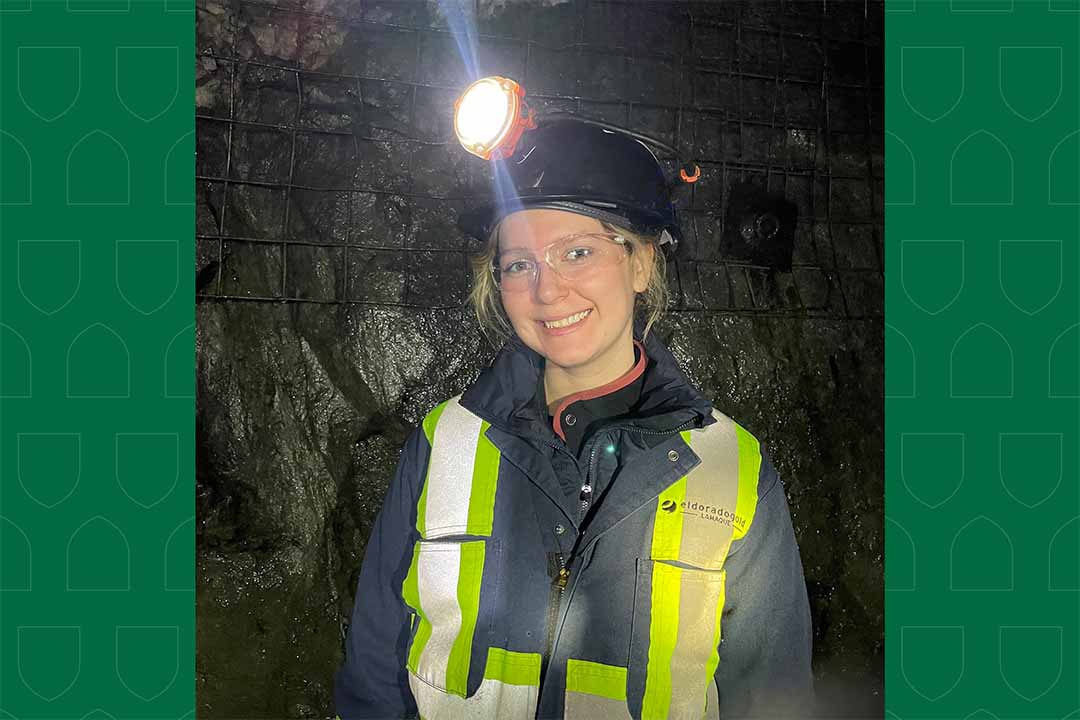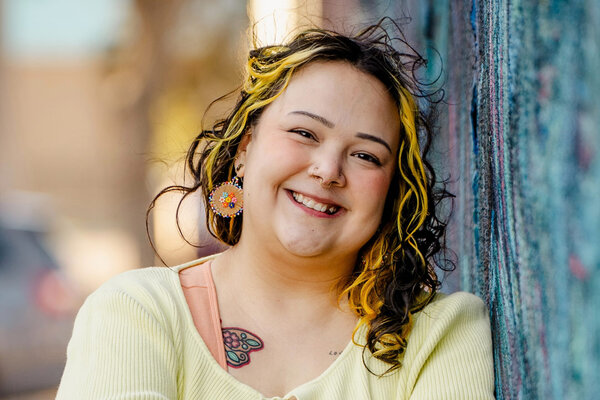
Geological sciences helps USask graduate expand horizons
University Medal in Sciences winner discusses benefits and challenges of switching her major midway through her undergraduate studies
by Kristen McEwen
Madison DeCorby was halfway through her mathematics program when she realized she wanted to pursue another subject area entirely—geological sciences.
“I was doing pretty much pure math—which I love math,” DeCorby said. “In geology, I can use math, I can use science, I write, I can go outside and do (fieldwork),” she added. “It was sort of a best of all worlds.”
DeCorby is graduating with her Bachelor of Science degree in Geological Sciences from the College of Arts and Science. She will be receiving the University Medal in Sciences at the 2024 University of Saskatchewan (USask) Fall Convocation on Nov. 13. The award recognizes an individual who has received the top grades of any undergraduate student majoring in science subject areas.
DeCorby had a taste of geology when she tried a course to fulfill a science course requirement in her first year.
Geology allowed DeCorby to incorporate physics, chemistry, biology—dabbling in all the sciences—while also learning outdoors. She thoroughly enjoyed both field courses, spending 10 days mapping rock units in Zortman, Montana, and Flin Flon, Manitoba.
Geology wasn’t something she was aware of when she was exploring careers in high school.
“You maybe learn a little bit (about geology), but most people don’t know much about it so you’re learning completely new information (in university),” she said.
After her second year, DeCorby approached an academic advisor to officially change her major. She went into her third year of university, taking 200 level geology classes. DeCorby felt like she didn’t know anything at all.
“You’re learning completely new information, and that’s just in second year (classes),” she added. “I remember the biggest challenge was that I just felt stupid all the time. And then as you learn more, you feel a little bit more confident in yourself.”
As DeCorby learned the material, she noticed her peers were struggling too. She became a teaching assistant (TA) for three of her geological sciences courses in her fourth year. She decided to hold extra study sessions for two classes outside of the classroom setting, to help with midterm preparation.
“I’ve really learned that I think differently than a lot of people,” she said. “So I have to think about it in a different way in order to help them. I’ve learned to think through problems in a couple of different ways.”
Another benefit to holding extra study sessions was getting an opportunity to know her peers. Upon returning to USask campus for in-person classes, DeCorby found that she didn’t have many friends.
“I didn’t know anyone in my classes, and there had been no one I’d gone to high school with, or had other classes with,” she said. “It was really challenging at first to put myself out there and make friends because I’m a little more introverted.
“In geology, of course you have to do things for yourself ... but it’s very collaborative because jobs in geology, you’re working with geologists all the time. Other people’s input matters just as much as yours.”
One of her final assignments was to create an exploration program for a critical mineral that would theoretically take about a year.
The student groups would have to choose a location that could potentially have the group’s critical mineral. The groups would then create a plan as to how they would develop an exploration model to determine if the mineral could be mined from the land. The groups have the opportunity to get feedback from experts in the industry. The successful group receives a giant fake cheque for $1.5 million.
“I had a lot of fun,” she said. “We had a good group and we were good at different things.”
Though she’s attending Fall Convocation, DeCorby has already started on her master’s degree with supervisor Dr. Chris Holmden (PhD), focusing on a project about isotope geochemistry of lithium in the Williston Basin, located in southern Saskatchewan and into the United States.
She plans to continue exploring geological sciences and how it ties into the future of renewable energies.
“As we transition to solar panels, wind turbines, all of those—they require mining and mineral extraction for that,” DeCorby said. “It’s going to be important to do that mining in an ethical and environmentally friendly way, and in a way that’s also concerned with land rights ... needing permission from Indigenous people.”
For students considering changing majors, or thinking about geological sciences, DeCorby recommends they try a class they don't know about.
"It’s not too late to switch,” she said. “Geology is good because I switched into it after doing two years of another major and was still able to finish in two years.”
Together we will support and inspire students to succeed. We invite you to join by supporting current and future students' needs at USask.


